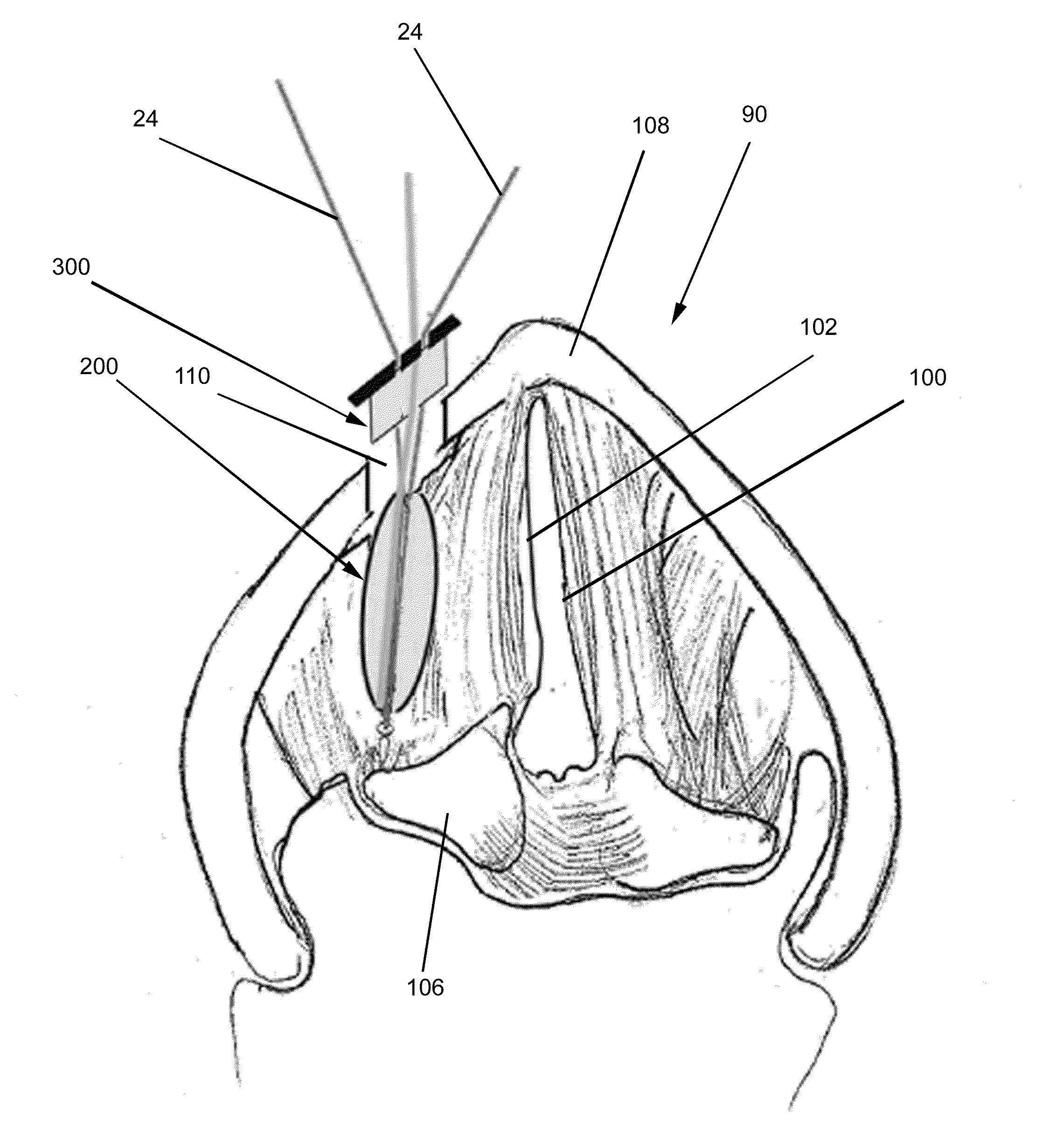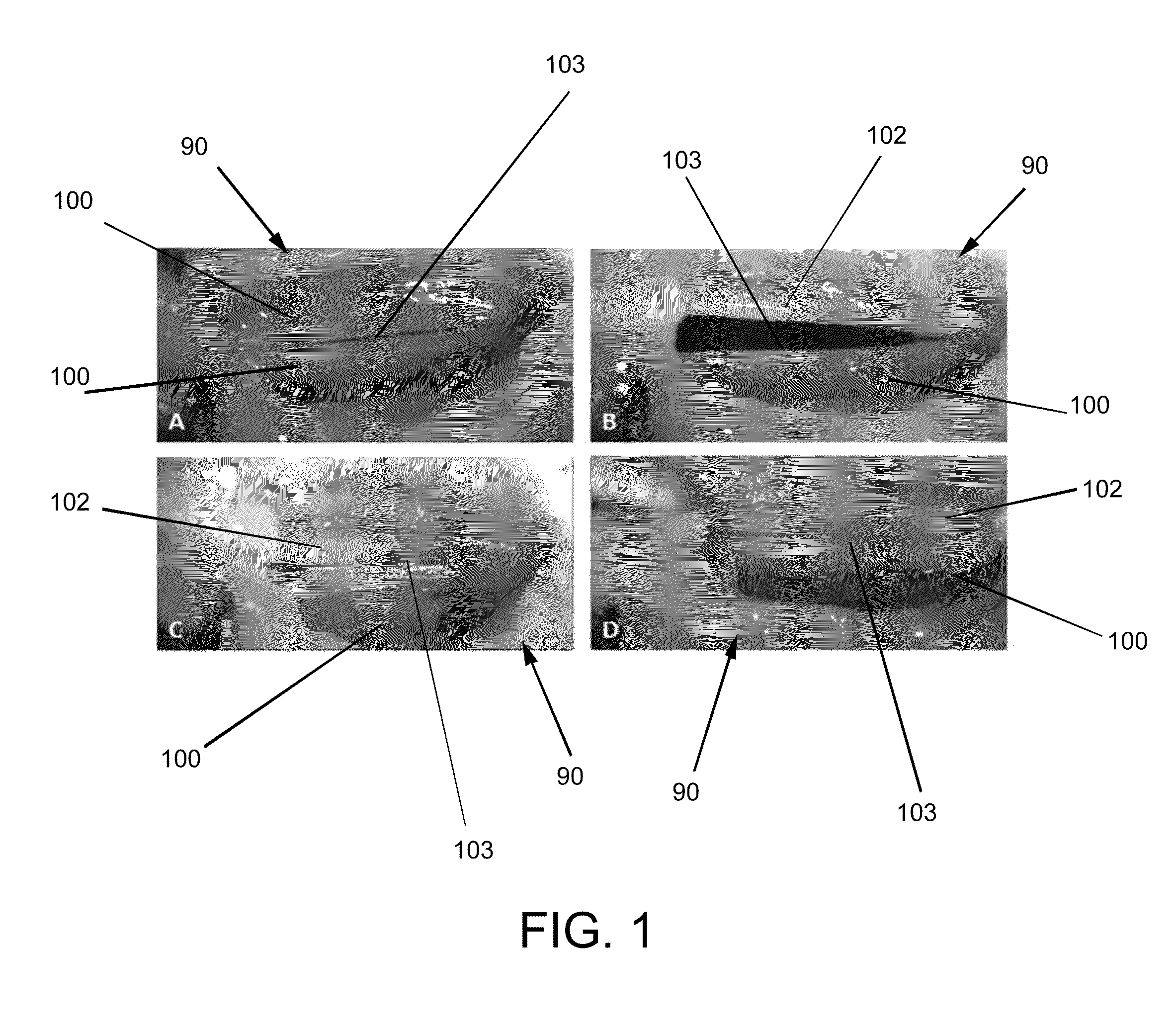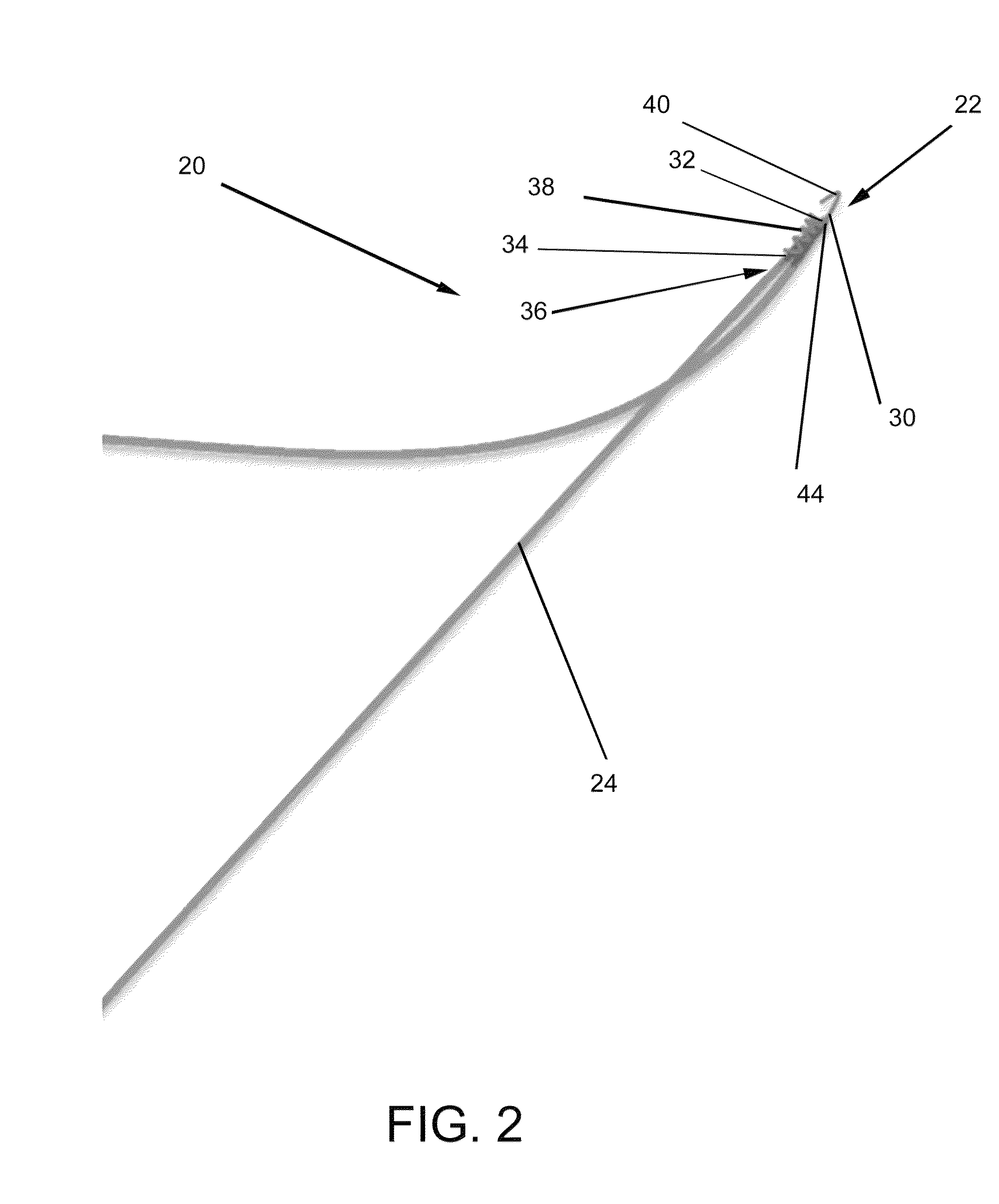Devices and methods for anterior arytenoid adduction
a technology of arytenoid adduction and device, which is applied in the direction of trachea, shoulder joints, application, etc., can solve the problems of vocal folds vibrating between open and closed, serious health problems, and difficulty in swallowing, and achieve the effect of closing the glottal gap
- Summary
- Abstract
- Description
- Claims
- Application Information
AI Technical Summary
Benefits of technology
Problems solved by technology
Method used
Image
Examples
example 1
Materials and Methods
[0073]Larynges
[0074]Four larynges were excised postmortem from canines sacrificed for non-research purposes according to the protocol described by Jiang and Titze. (Jiang J J, Titze I R. Laryngoscope 1993, 103, 872-82, incorporated herein by reference). As the properties of the canine and human larynx are similar, it is an appropriate model for studying human laryngeal physiology. Larynges were examined for evidence of trauma or disorders; any larynges exhibiting trauma or disorders were excluded. Following visual inspection, larynges were frozen in 0.9% saline solution.
[0075]Apparatus
[0076]Prior to the experiment, the epiglottis, corniculate cartilages, cuneiform cartilages, and ventricular folds were dissected away to expose the true vocal folds. The superior cornu and posterosuperior part of the thyroid cartilage ipsilateral to the normal vocal fold were also dissected away to facilitate insertion of a lateral 3-pronged micrometer into the arytenoid cartilage...
example 2
Anterior Arytenoid Adduction
[0089]Four larynges were excised and prepared as described in Example 1. The arytenoid was adducted from the anterior as described in Example 1. Briefly, Stainless steel wire with diameter of 0.015″ and length of approximately 5 cm was curled around a 20 gauge needle. A hook was formed at one end of the wire by bending it approximately 2 mm from the end. The specific dimensions of the hook are not critical and the length can easily be decreased once placed inside the larynx if necessary. Gore-Tex suture was threaded through the curled wire and doubled back outside the curled portion proximal to the hook (FIG. 2). In this experiment, CV-2 expanded polytetrafluoroethylene (Gore-Tex) suture was used, though the particular size is not important and can be varied across cases. Once the suture wire complex is created, it is threaded through a 14-gauge needle. A 20-gauge needle serving as a guide needle is also threaded through the 14-gauge needle (FIG. 3). When...
PUM
 Login to View More
Login to View More Abstract
Description
Claims
Application Information
 Login to View More
Login to View More - R&D
- Intellectual Property
- Life Sciences
- Materials
- Tech Scout
- Unparalleled Data Quality
- Higher Quality Content
- 60% Fewer Hallucinations
Browse by: Latest US Patents, China's latest patents, Technical Efficacy Thesaurus, Application Domain, Technology Topic, Popular Technical Reports.
© 2025 PatSnap. All rights reserved.Legal|Privacy policy|Modern Slavery Act Transparency Statement|Sitemap|About US| Contact US: help@patsnap.com



